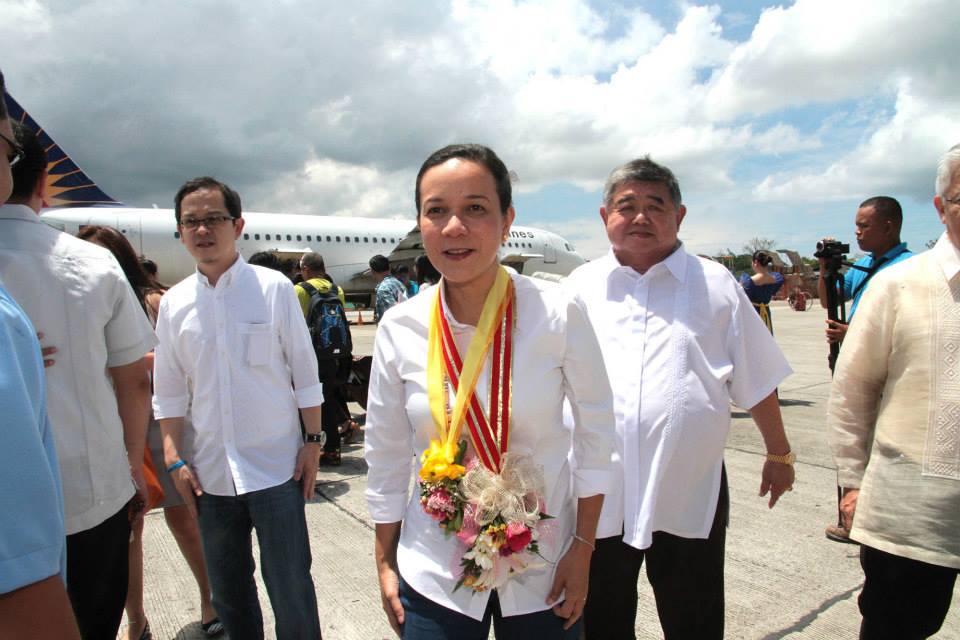
TAGBILARAN CITY — The P10 billion scam in the Priority Development Assistance Fund (PDAF) that has rocked the country could have been prevented had the Freedom of Information (FOI) Act been signed into law earlier, according Senator Grace Poe.
Poe made the statement in a speech during the 60th anniversary celebration of the Bohol Chronicle, Bohol’s oldest newspaper, held at the Bohol Tropics here over the weekend.
“If we had the FOI earlier, the PDAF scandal could not have happened in the first place or to a lesser degree, Poe, the main sponsor of the bill that was passed by the Senate on third and final reading last March 10, said.
The lady senator explained the significance of the FOI Act becoming a law because it will bring the so-called “sunshine principle of transparency in government.”
Speaking in mixed English and Tagalog, Poe said: “Everything that is not exposed to sunlight could bring germs in one’s clothes,” adding that “yun nakatago po sa ating cabinet na ilang dekada pag inilabas mo malamang mayroonn amag at mikrobio. Ganyan din po ang mga transaction ng gobyerno. Ganyan din po pag wala pong pakialam ang tao. If we do not act on these documents, naturally a lot of anomalies can happen.”
The neophyte senator also stressed the importance for the people “to have access to government transactions.”
At the same time, Poe said the FOI once it is signed and become a law, the public will have authority to check on government transactions “over private corporations that enter into an agreement with government.”
For example, she said ordinary citizens liked farmers, fishermen and laborers can ask their mayors to inquire about the progress of projects that concern them or they can report to the media.
Commenting on the PDAF scam, Poe said that it was “quite and tragedy to have this kind of corruption in our country (but) on the other hand, it is an opportunity for us to make our system better.”
“The PDAF scandal is a very tragic and sad because some of them are very good friends of mine,” Poe said.
However, Poe said that like a family if some siblings are wayward, they must be responsible for what they have done.
Referring to the PDAF anomaly, “kung may kailangan makulong, malungkot man. Kailan pa tayo matutu?” she asked.
“We have to set an example to our children. If we need the help of fair, newsworthy have make sure that the price we have to pay for democracy is upheld, is that the truth of what is happening is reported,” Poe said.
In her speech, Poe also cited the achievements of the Bohol Chronicle for the past six decades, serving the public, particularly the Boholanos, especially those living outside Bohol, giving them updates of the latest news about their province.
The Bohol Chronicle was founded on May 16, 1954, and since that time it has not missed a single issue to date.
It was also the first community newspaper in the country to be allowed to open under martial law in 1972.
Despite the hardship it encountered, the late Atty. Zoilo D. Dejaresco Jr., the editor-publisher, faced all difficulties of a struggling paper as the Bohol Chronicle was cited as the best edited community paper in the country in 1970.
The Bohol Chronicle had received numerous awards through the years, the latest of which was last week when paper romped away six of the seven awards in journalism in the entire Visayas region.
Today, the Bohol Chronicle, an independent bi-weekly publication, is run by the second generation of the Dejaresco family.
It is edited by Bingo P. Dejaresco, editor-in-chief, and Peter P. Dejaresco, associate editor.
From a four-page newspaper in 1954, the hard-hitting Bohol Chronicle is now a 32-page bi-weekly publication, making it the number one newspaper in Bohol, publishing without fear or favor.
The celebration was opened with a concelebrated Mass led by Msgr. Leonardo Medroso, bishop of Tagbilaran.
A coffee table book entitled “Sixty Years of the Bohol Chronicle (1954-2014) was launched during the occasion.
Prominent guests included Bohol Gov. Edgar Chatto, Tagbilaran City Mayor John “Baba” Yap and Cong. Arthur C. Yap. (Bohol, 3rd District).
Rev. Fr. Roy Cimagala led the invocation.